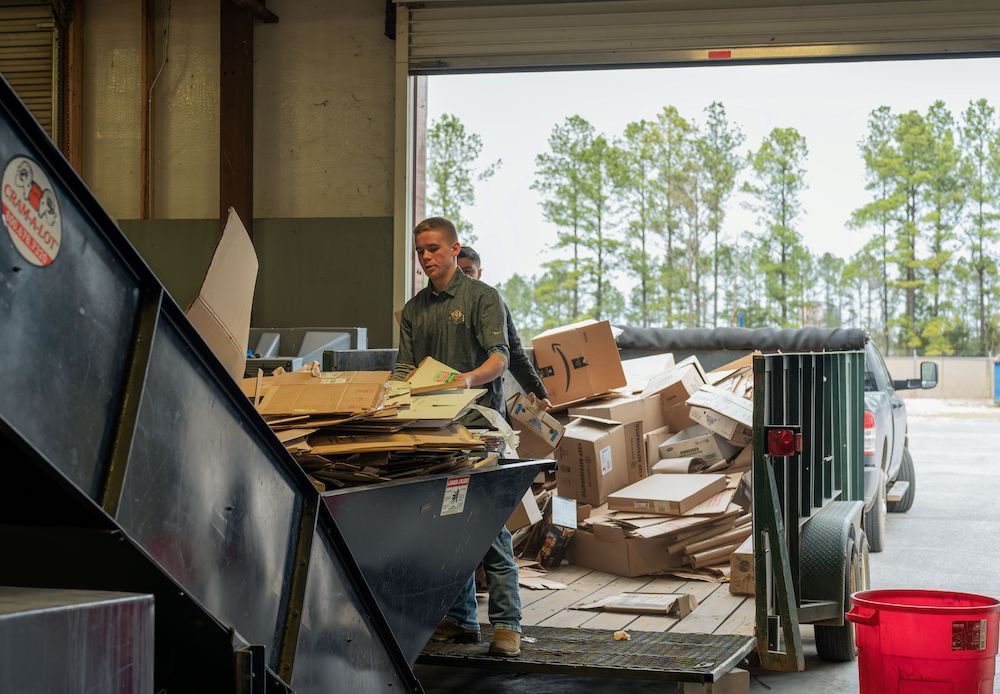
- Details
- By Tribal Business News Staff
- Energy | Environment
Four tribal communities will get support from the Environmental Protection Agency, including help with recycling infrastructure, pollution remediation, and collaborative planning for new community facilities.
Under the EPA’s Environmental Protection Agency’s Solid Waste Infrastructure for Recycling (SWIFR) grant, the Poarch Band of Creek Indians received roughly $787,000 to bolster an existing recycling partnership with the nearby town of Brewton, Ala.
For the Poarch Band, SWIFR money will support a recycling feasibility and sustainability study on needed improvements to recycling infrastructure, purchase more community recycling containers, and improve education and outreach, said Poarch Band Director of Environmental Programs Kristi Weatherford.
“We are excited to continue our work with local partners like the City of Brewton in growing a healthy relationship for both environmental education and active recycling efforts,” Weatherford said in a statement.
The partnership between the city and tribe has been “key” to building environmental sustainability in rural parts of Alabama, and marked as a successful model for other communities to examine, per a Poarch Band statement announcing the award. Improved infrastructure and outreach will allow the tribe to expand recycling availability to the public, as well as the list of recyclable materials, the tribe writes.
In another announcement last week, the EPA said that the Passamaquoddy Point Tribe, the St. Regis Mohawk Tribe, and the Shinnecock Indian Nation were selected among 10 recipients of technical assistance support in restoring polluted properties on tribal lands through the EPA’s Building Blocks for Sustainable Communities program
The program installs an EPA presence in selected communities to work closely with tribal or local governments in developing solutions to environmental crises. The program lets communities lead the EPA in directing agency resources and expertise toward a given problem.
While the EPA can direct partners toward other federal funding programs as part of their relationship, the Building Blocks Program does not supply any funding directly, per an EPA representative in an email to Tribal Business News.
For the Passamaquoddy Tribe of Point Pleasant, Maine, that means working with the EPA’s Brownfields program to remediate a site on tribal land for redevelopment toward youth activities. That program awards grants and technical assistance to safely clean up and reuse contaminated properties. In the Passamaquoddy Tribe’s case, that means clearing the land for use in hunting, fishing, and camping.
“I’m extremely excited for this new opportunity for the youth! I work very closely in the community, and I have four boys myself. This is going to be an amazing venture for them,” said tribal member Melissa Dana. “Coming as a parent of all boys who are all adventurous and spend half their time in the woods, this is definitely going to be utilized.”
In New York, the Akwesasne/St. Regis Mohawk Tribe plans to collaborate with the EPA on the plans for an Akwesasne Heritage Center Complex, aiming to build the complex on a site currently undergoing environmental assessment. Working with the EPA directly, said the tribe’s Executive Director Tsiorasa Barreiero, would provide crucial technical assistance in planning around the eventual environmental needs of the center in question.
Also in New York, the Shinnecock Nation will use the EPA Building Blocks collaborative process to clean up and reuse contaminated properties on their reservation along the southern shore of Long Island. Cleaning and restoring these properties will allow the tribe to expand development, said Shinnecock Environmental Director Shavonne Smith in a statement.
“Our Building Blocks project will be the critical first step towards remediation of multiple abandoned properties and support our sustainable development for the wellbeing of the people and wildlife alike,” Smith said.
Vicki Arroyo, EPA associate administrator for policy, called the Building Blocks program a way to provide communities direct help with sustainability.
“Many communities are looking to grow in ways that create economic opportunity and enhance quality of life, while also protecting the environment,” Arroyo said in a statement. “Our Building Blocks program provides assistance with proven development strategies to help communities plan for a healthier, more vibrant future.”
